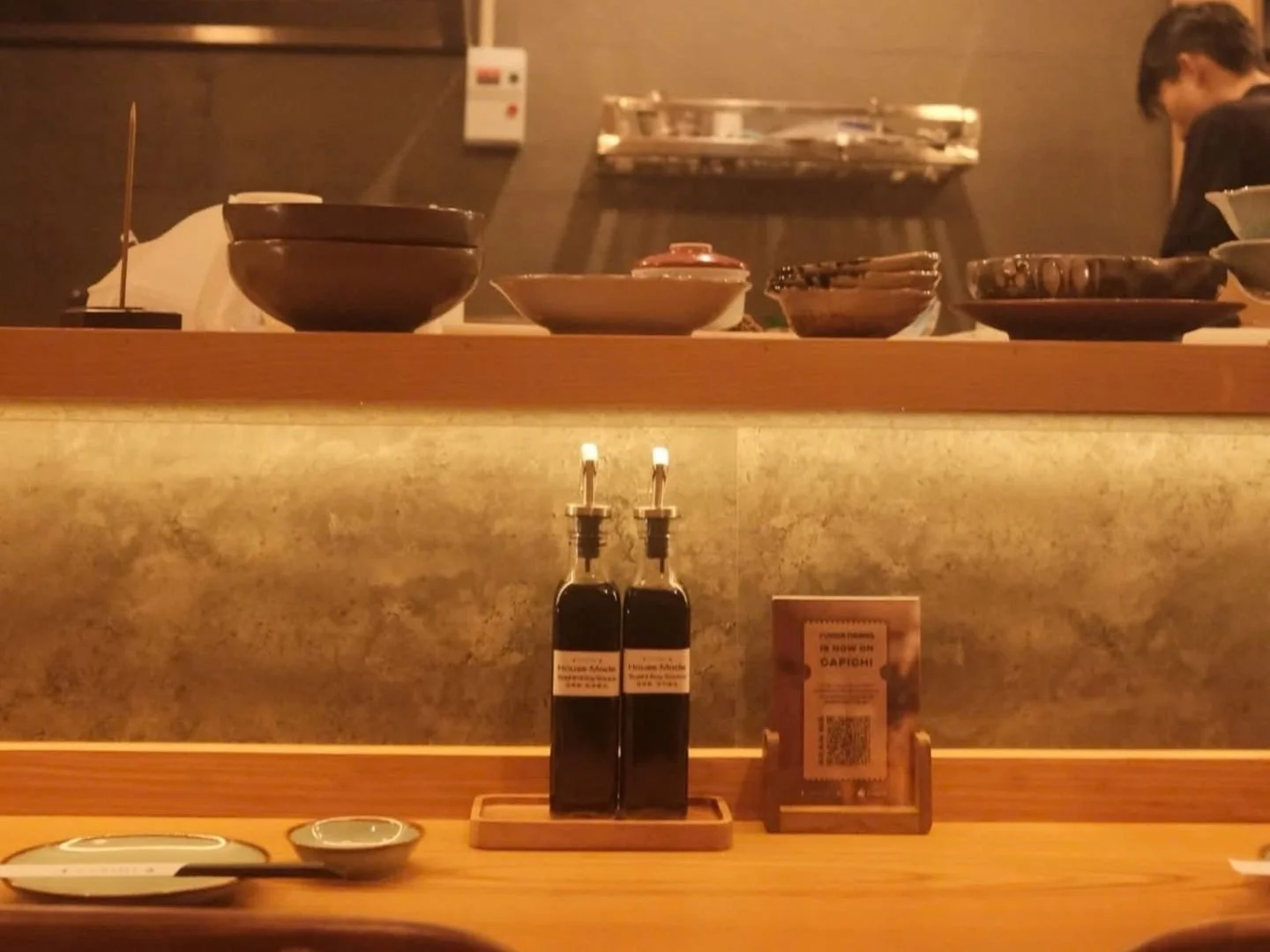The Rise of Plant-Based Foods in Southeast Asia (2021)
Didier Chanove, Head of Marketing at Unilever Food Solutions and Asia Business Development Lead at The Vegetarian Butcher
Last month I spoke with Didier Chanove, Head of Marketing at Unilever Food Solutions in Malaysia and Singapore as well as Business Development Lead for The Vegetarian Butcher (part of Unilever Food Solutions) in Southeast Asia. Originally from France, Didier has been living across Asia and is now based in Singapore. One of his biggest focuses is to transform the food industry by driving the plant-based agenda for Unilever in South East Asia. This is done through his role as Asia Business Development Lead at The Vegetarian Butcher, a brand that Unilever Food Solutions acquired in December 2018. The Vegetarian Butcher is a European brand from the Netherlands founded by a farmer and butcher. It has since across Europe in the past few years and successfully rode on the back of the booming plant-based trend currently seen around the world.
UNDERSTANDING PLANT-BASED FOOD
Can you explain what plant-based foods are? Are they the same as vegan foods?
Plant-based foods are foods such as meat, seafood and dairy but without animal proteins. These animal proteins are replaced with plant proteins such as soy and pea (most popular in the market) and examples include plant-based meat patties, nuggets, dairy and so forth.
Contrary to popular belief, plant-based foods are not necessarily vegan because some plant-based foods may still contain egg. To make it simple, plant-based foods contain a high level of plant protein and do not contain any animal protein.
Is lab-grown cell-based meat plant-based?
Cell-based meat on the other hand is not necessarily considered plant-based in my opinion as it still uses an element of an animal to cultivate the protein. But ultimately it still depends as there are cell-based meats that are derived from plant protein. However, often to mimic the taste, cell-based meats use animal protein.
What are the benefits of a plant-based diet?
With the world’s population expected to grow to 10 billion by 2050 (currently at 7 billion), the benefits of a plant-based diet include a lower global carbon footprint from a lower overconsumption of meat, lower calories and cholesterol as well as animal welfare. Currently more than 70% of the world’s population still eats meat on a daily basis and as the population grows, our eating habits and the way we consume have to evolve and one of the ways is to diversify the way we eat and hence the birth of plant-based alternatives.
THE GROWTH OF PLANT-BASED FOODS IN SOUTHEAST ASIA
When did the plant-based trend arrive and pick up in Southeast Asia?
In Southeast Asia, plant-based foods are not new. People in this region have been eating tofu, tempeh and mock meats for a long time and they are very common in street food and hawker centres so it’s not something new. However what is different and has spiked in the last 2-3 years is the uptake of plant-based foods by flexitarians (people who eat meat but would incorporate more vegetarian options into their diets if given a choice). There are 2 key reasons driving this and these are a greater awareness of the impact of meat consumption on our environment and our health.
Furthermore, with the advancement of technology, we are able to introduce plant-based alternatives of traditional non-plant based products such as meat, dairy and even seafood that are similar in taste and texture. Taste is very important simply because you don’t eat something you don’t like. Hence, this provides more options to flexitarians, resulting in the spike that we see across Southeast Asia in the past 2-3 years.
Are you able to share some numbers on the growth of plant-based foods in Southeast Asia?
It’s difficult to give a concrete number as the food industry is fragmented however we do see that in Southeast Asia, the numbers are growing very fast at least double digit growth in the last 2 to 3 years. Taking Singapore for example, studies have shown that there 2 in 3 people consider themselves flexitarians and are actively reducing their levels of meat consumption. It’s a huge number and probably the highest in the whole of Southeast Asia.
Double digit growth, that’s very impressive! Which are the countries in Southeast Asia currently leading the plant-based food revolution?
Singapore is taking the lead as mentioned above it’s probably the highest number in the region however we do see a huge pick-up in Thailand and Philippines. Countries such as Malaysia and Indonesia are a bit slower because the meat price in these countries are very low and considering plant-based meats are still not as competitively priced, it will take more time for operators to consider switching to plant-based meats. However I remain hopeful as the prices go down as more people consume plant-based meats in the region.
How does the plant-based food consumption in Southeast Asia compare to the rest of the world?
The global meat market is worth over 14 trillion US dollars and the current size of the plant-based meat consumption is around 14 billion. It’s huge but small in comparison (less than 1% of the total market). When you look at Europe and the US, the plant-based market there is a lot more mature and we’ve seen rapid double digit growth in the past 3 to 4 years. In fact, in the US studies have shown that 14% of the market is already consuming plant-based dairy alternatives and if we assume the trend to be the same, we’re looking at the plant-based market closing at 10% of total global meat consumption.
In Southeast Asia, the meat consumption here is not as high. A few reasons include the high concentration of Buddhists in this region and also the tropical weather allows for infinite access to fresh vegetables, foods and other food options.
What are the best performing plant-based categories in Southeast Asia?
Plant-based meat is definitely the fastest growing category because there are more options for example beef, chicken, pork and different types of meats within the same category (patties, sausages etc.). With cheese, it’s more complicated because when you eat cheese, you have to consider the way it melts, the smell, the taste, texture and so forth that’s why it’s growing a bit slower versus plant-based meats.
Do you have to create different kinds of plant-based products to accommodate the Southeast Asia market? Understandably cooking methods here are slightly more different than in the US and Europe for example stir fry, steaming and so forth.
No we don’t see the need of creating separate products. The plant-based products are flexible and patties can be broken down into strips as well as nuggets into minced meats.
How is Vietnam in this whole race?
Vietnam is a very fast developing market and we see a similar trend picking up in the country as well.
ADOPTION OF PLANT-BASED FOODS IN SOUTHEAST ASIA
I just want to circle back to Malaysia and Indonesia. You had mentioned the adoption is relatively slower in these countries however they’re the largest consumers of chicken and the most obese nations. I was expecting pick-up to be a lot higher in these countries.
You are right however these countries also have one of the lowest costs of meat in the region. In the case of Malaysia and Indonesia, you have to look at the flexitarian consumers to move the needle. Since price as well as halal certification remain challenges, it will take a longer time for plant-based alternatives to become mainstream in these countries. Furthermore, the awareness and importance placed on sustainability is comparatively less in SEA consumers than in Europe or the US and this can be seen in supermarkets. For example, plastic bags are nowhere to be seen in the Western powerhouses but still remain a very common commodity in Southeast Asia so it’ll take time to educate consumers as well.
Can you share how Unilever Food Solutions is helping to educate consumers in the region on plant-based foods?
The younger generation (18-40s) understand the impact of their consumption on the environment and place more importance on their health and diet. This can be seen in other consumption patterns such as zero-sugar alcohol and beverages so naturally they’re more receptive to plant-based meats as well as being educated on the topics that encourage their consumption. At Unilever, we partner up with operators that share our same vision of sustainable consumption and spread education through such collaborations.
One of the things that we assure consumers is that everything is natural so for example, to attain the red colour of our meats we use beetroot and natural ingredients. Furthermore, all our products are compliant with each country’s regulation so the aspect of food safety is there.
What do you think is the biggest challenge holding consumers back from adopting plant-based foods into their diets?
I believe the biggest challenge is the availability of plant-based products. Currently plant-based products are not as readily available as non-plant-based products hence the first thing we need to do is make sure that everybody has access to them. Secondly, price is still a challenge since plant-based meats are still comparatively higher hence many operators are not willing to carry these products. However the good news is more and more people are willing to try it and as this trend grows, the increase in volume will also result in economies of scale and hence reduce the price of plant-based meats.
What are the key challenges that restaurants face when adopting plant-based products?
While there is a lot of interest around the category, there is still effort required to convince F&B operators to adopt plant-based products into their menu. Their thinking is “if plant-based consumption is not as big as meat consumption, is it worth complicating my restaurant operations to add another ingredient and menu item?”. That’s one of the challenges at the moment, to get operators to see the potential of plant-based meats however we do need them in our movement to democratize plant-based consumption in Southeast Asia.
Another factor is price, especially when the operator is positioned in a low to mid price point since the cost of plant-based products are still higher than normal meat thus introducing plant-based products can potentially result in lower profits. Last but not least, some chefs are still unsure about how or the best way to use plant-based products so we need to educate them and in some cases work with them to develop recipes since some plant-based alternatives have longer or shorter cooking times and are not direct substitutes.
Do you find similar challenges with street food vendors? Considering street food culture is such a huge aspect of food culture in Southeast Asia, is there a plan for the adoption of plant-based products in street food vendors?
Interestingly, Southeast Asia is the region that eats out of home the most. In Southeast Asia, close to 33% of the population eats out on a daily basis and it’s because of the accessibility and price competitiveness of street food. Our vision at The Vegetarian Butcher is to be the leading butcher in the world so yes, it would be part of the vision to include street food vendors. Furthermore, our plant-based products are street-food friendly and our team of chefs are more than ready and capable to help street food vendors develop recipes close to their original menu items using our plant-based products. The challenge would be to offer competitive prices to their existing ingredients since street food prices need to be kept relatively low and we wouldn’t want to eat into the vendors’ profit margins.
THE FUTURE OF PLANT-BASED FOODS IN SOUTHEAST ASIA
What is the future of plant-based food in Southeast Asia in 5 years time?
My vision is that it’ll continue to grow at the same rate year on year and hopefully in the next 5 years, at least 8-10% of the younger generation (18-40 years) will be consuming plant-based foods at least 2 to 3 times a week.
So I know that Burger King is working with The Vegetarian Butcher and Korea recently launched its first plant-based burger. When can we expect to see this in Southeast Asia?
Currently, The Vegetarian Butcher has a partnership with Burger King in Europe (25 countries), in Latin America, Brazil, Mexico and other markets in Asia. It was recently launched in China, Korea and also present in the Philippines. I believe by this year, we can expect this roll-out to be across all of Asia so definitely watch out Southeast Asia!















Like what you read?
Discover Vietnam’s coming-of-age food and drink scene with one of our tours and experiences exclusively available at Saigon Social